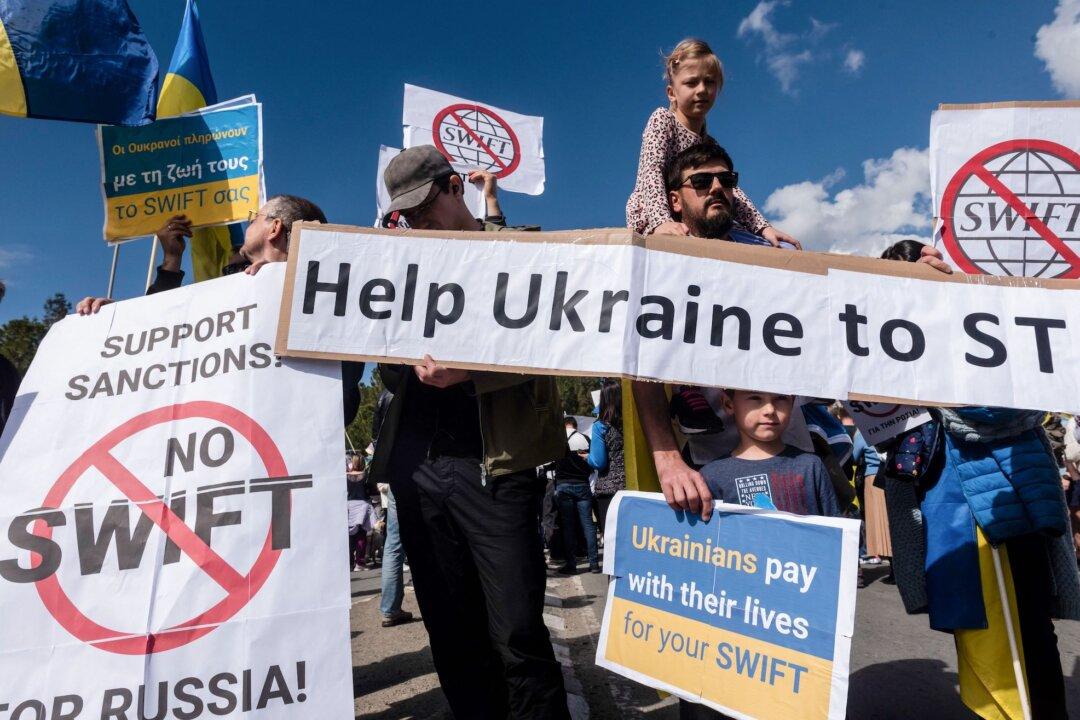Western partners are inching closer to ejecting Russia from the SWIFT global interbank payments system over the Kremlin’s aggression in Ukraine, according to Lithuania’s prime minister.
“Our goal is that the decision is taken as early as possible. I cannot give a particular date. From what I’m hearing it seems that there is no strong opposition left,” Lithuanian Prime Minister Ingrida Simonyte told a news conference on Feb. 26 in Vilnius.





